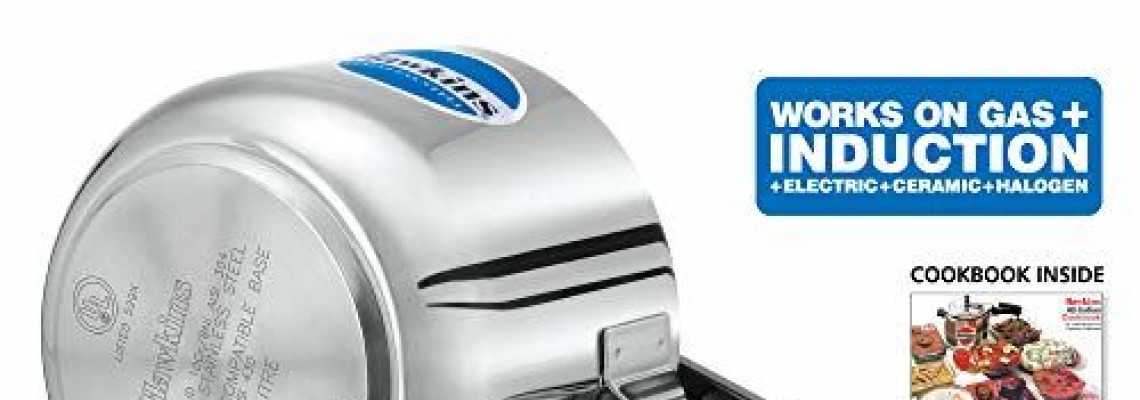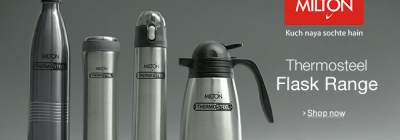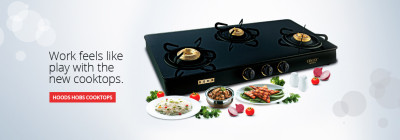
When it comes to choosing a pressure cooker, you want to make sure you're investing in a durable and reliable option. Two popular choices that often come up are pressure cooker aluminium and pressure cooker stainless steel. But which is the better choice? In this article, we'll uncover the pros and cons of each, allowing you to make an informed decision.
First, let's take a closer look at pressure cooker aluminium. Known for its excellent heat conductivity and lightweight design, aluminium cookers heat up quickly and distribute heat evenly. This means faster cooking times and efficient energy usage. However, aluminium is more prone to dents and scratches, and it may react with acidic or alkaline ingredients, altering the taste of your food.
On the other hand, pressure cooker stainless steel offers durability, resistance to scratches and stains, and is non-reactive with food. It may take slightly longer to heat up compared to aluminium, but it retains heat well. Stainless steel cookers are also known for their sleek and modern appearance, fitting seamlessly into any kitchen.
In the end, the best choice between pressure cooker aluminium and stainless steel depends on your personal preferences, cooking needs, and budget. So weigh the pros and cons and choose the one that suits you best!
Understanding the difference between aluminium and stainless steel pressure cookers
Pressure cookers are essential kitchen tools that help in reducing cooking time and preserving the nutritional value of food. They work by creating a sealed environment that increases the boiling point of liquids, resulting in faster cooking. Aluminium and stainless steel are the most common materials used in pressure cooker construction, each with its own set of advantages and disadvantages.
Pros and cons of aluminium pressure cookers
Aluminium pressure cookers have been a popular choice for many years due to their excellent heat conductivity and lightweight design. These cookers heat up quickly and distribute heat evenly, allowing for faster cooking times and efficient energy usage. The lightweight nature of aluminium makes it easier to handle and maneuver in the kitchen.
However, aluminium is more prone to dents and scratches compared to stainless steel. This can be a concern if you frequently handle your pressure cooker or if you have a busy kitchen. Additionally, aluminium has a higher tendency to react with acidic or alkaline ingredients, which may alter the taste of your food. If you often cook dishes that contain tomatoes, lemon juice, or vinegar, a stainless steel pressure cooker might be a better option for you.
Pros and cons of stainless steel pressure cookers
Stainless steel pressure cookers offer a range of benefits that make them an attractive choice for many home cooks. Firstly, stainless steel is highly durable and resistant to scratches and stains. This ensures that your pressure cooker will remain in good condition even with regular use. Additionally, stainless steel is non-reactive with food, so you don't have to worry about any unwanted flavors being transferred to your dishes.
While stainless steel cookers may take slightly longer to heat up compared to aluminium, they have excellent heat retention properties. This means that once they reach the desired temperature, they will maintain it for a longer period. This can be advantageous for slow cooking or keeping food warm before serving. Stainless steel pressure cookers also have a sleek and modern appearance, making them a stylish addition to any kitchen.
Factors to consider when choosing between aluminium and stainless steel pressure cookers
When choosing between pressure cooker aluminium and stainless steel, there are a few key factors to consider. Firstly, think about your cooking needs and preferences. If you prioritize fast cooking times and energy efficiency, aluminium may be the better choice. On the other hand, if durability, stain resistance, and non-reactivity are important to you, stainless steel is likely the more suitable option.
Another important consideration is your budget. Aluminium pressure cookers tend to be more affordable compared to their stainless steel counterparts. If you're looking to save some money, an aluminium cooker may be the way to go. However, keep in mind that stainless steel cookers offer long-term durability and may end up being a better investment in the long run.
Durability is a significant factor to consider when choosing a pressure cooker. While both aluminium and stainless steel cookers are durable, stainless steel has the edge in terms of longevity. Stainless steel is highly resistant to scratches and stains, making it more likely to withstand the test of time. On the other hand, aluminium is softer and more prone to dents and scratches, which can affect its lifespan.
It's important to note that the lifespan of a pressure cooker depends on several factors, including the quality of construction and proper care and maintenance. While a stainless steel cooker may have a longer lifespan, with proper care, an aluminium cooker can also last for many years.
Safety is of utmost importance when it comes to pressure cookers. Both aluminium and stainless steel cookers are generally safe to use, but there are a few considerations to keep in mind.
Aluminium cookers may not be suitable for cooking highly acidic or alkaline ingredients due to the potential reaction that can occur. This can affect the taste and safety of the food. To avoid this, it is recommended to choose a stainless steel cooker if you frequently cook dishes that contain such ingredients.
Stainless steel cookers are generally considered safe for cooking all types of food. However, it's important to ensure that the cooker has a reliable pressure release mechanism to prevent accidents and ensure the safety of the user. Always follow the manufacturer's instructions and guidelines for safe usage.
Proper maintenance and care can significantly extend the lifespan of your pressure cooker, regardless of whether it's made of aluminium or stainless steel. Here are some tips to keep in mind:
- After each use, thoroughly clean the pressure cooker, including the lid and gasket, to remove any food residue.
- Check the gasket regularly for signs of wear and tear. If it becomes damaged or brittle, replace it to ensure a proper seal.
- Avoid using abrasive cleaning agents or scrubbers that can damage the surface of your pressure cooker.
- Store your pressure cooker in a dry and clean place to prevent the development of rust or corrosion.
- Follow the manufacturer's instructions for regular maintenance, such as lubricating the pressure release valve or replacing any worn-out parts.
When it comes to choosing a pressure cooker, there are several reputable brands and models to consider. Here are a few popular options for both aluminium and stainless steel cookers:
Aluminium Pressure Cookers:
- Prestige Popular Aluminium Pressure Cooker
- Hawkins Contura Hard Anodised Aluminium Pressure Cooker
- Butterfly Standard Plus Aluminium Pressure Cooker
Stainless Steel Pressure Cookers:
- Instant Pot Duo Nova Stainless Steel Pressure Cooker
- Fissler Vitavit Premium Stainless Steel Pressure Cooker
- T-fal P45009 Stainless Steel Pressure Cooker
These brands offer a range of sizes and features to suit different cooking needs and budgets. Be sure to read reviews and compare the specifications of each model to find the one that best fits your requirements.





Leave a Comment